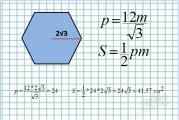How to fill out a specialist replacement plan. Plan for the replacement of specialists in wartime. Military commissariats in relation to UZ carry out
The tax authorities can no longer penalize an entrepreneur for late personal income tax if he paid off the debt himself. The reason for the delay is irrelevant. This decision was taken by the Constitutional Court in the case of one entrepreneur.
During an on-site tax audit, the tax office discovered that the company had transferred personal income tax late. The inspectors issued a fine of ₽299,403 and a fine of ₽4,896. The businessman did not agree with the fine and went to court to prove that he should not pay the fine, because he managed to correct the mistake before the tax arrived. The businessman was refused in the city, district and regional courts, and the complaint was not even accepted in the Supreme Court. Then he appealed to the Constitutional Court. The Constitutional Court did a good job - it confirmed the correctness of the entrepreneur and allowed him not to pay a fine.
The tax authorities will no longer be able to fine entrepreneurs who have corrected the violation on their own - the decision of the Constitutional Court is binding on everyone.
What does it mean?
If a businessman does not transfer personal income tax on time, he is entitled to a fine - 20% of the unpaid tax amount (Article 123 of the Tax Code of the Russian Federation).
It happens that a businessman makes a mistake in accounting or incorrectly fills out a declaration. There will be no penalty if he corrects the mistake, pays the missing amount of tax and submits a clarifying declaration. Even if it happens later than the tax payment deadline. The Tax Code provides for two such cases (p.
4 tbsp. 81 of the Tax Code of the Russian Federation):
- If a businessman paid the missing amount of tax and filed a corrected declaration before he found out that the tax authorities had discovered an error or scheduled an on-site audit.
- If a businessman submitted an amended declaration after an on-site inspection, during which the inspector did not find errors that underestimate the amount of tax.
In our case, the businessman correctly prepared the declaration, but overdue personal income tax payment for his employees. Despite the fact that he himself corrected the violation and paid the late fee before the tax authorities discovered it, the inspector imposed a fine. The tax authorities calculated: since the businessman did not correct anything and did not submit an updated declaration, then paragraph 4 of p. 81 of the Tax Code of the Russian Federation does not apply to him. So, you can impose sanctions in the form of a fine.
All courts supported the position of the tax authorities, and Supreme Court did not accept the complaint. Then the businessman turned to the Constitutional Court to check the constitutionality of the provisions of Art. 123 of the Tax Code of the Russian Federation and paragraph 4 of Art. 81 of the Tax Code of the Russian Federation. The court ruled that the norms of the articles do not contradict the constitution, but confirmed the correctness of the businessman. If a businessman paid the debt and late payment interest on personal income tax before the tax authorities found out about the violation, he does not have to pay a fine. The reasons for the delay are irrelevant. There was a precedent.
How will this affect businessmen?
Previously, the tax authorities fined entrepreneurs for late personal income tax, if it was not associated with errors in the declaration. Even if the businessman corrected the violation on his own. Now the inspector will not be able to issue fines, regardless of the reason for the delay. The main thing is to correct the violation before the tax office finds it. If a fine is nevertheless appointed, you can safely sue the tax. Given the precedent, it won't be hard to win a trial.
Let's summarize
If you are late with your personal income tax payment, correct the violation before the tax office finds it. Then you won't be fined. The reason for the delay is irrelevant. If the inspector still imposed a fine, you can safely sue the tax. The decisions of the Constitutional Court are binding on everyone, so it will not be difficult to win the court.
Penalty for non-payment and late payment of taxes by an individual in 2018
Timely payment of taxes is the duty of every taxpayer, ignoring which leads to serious consequences. You will learn about what personal income tax is, who should pay it, and what penalties exist for non-payment of income and transport taxes from the material below.
What is personal income tax
According to paragraph 1 of Art. 3 of the Tax Code of the Russian Federation, everyone is obliged to pay taxes established by law. Non-payment of taxes by an individual is an offense for which tax liability is provided.
“A tax offense is recognized as a guilty illegal (in violation of the legislation on taxes and fees) act (action or inaction) of a taxpayer, payer of insurance premiums, a tax agent and other persons, for which liability is established by this Code.”
(Article 106 of the Tax Code of the Russian Federation)
PIT is a personal income tax. The object of taxation is any income (both in cash and in kind and material) received during the calendar year.
Income tax payers are:
Tax residents of the Russian Federation;
Individuals non-residents of the Russian Federation who receive income from sources of the Russian Federation.
“Taxpayers of personal income tax (hereinafter referred to in this chapter as taxpayers) are individuals who are tax residents Russian Federation, as well as individuals receiving income from sources in the Russian Federation who are not tax residents of the Russian Federation. (part 1 of article 207 of the Tax Code of the Russian Federation)
In what cases is liability for personal income tax
Liability for income tax arises if the taxpayer within the prescribed time limits:
Failed to pay tax or did not pay the full amount of tax;
Didn't submit a tax return.

In case of failure to submit a declaration to the taxpayer, a fine of 5% of the unpaid tax for each month of its delay in accordance with Part 1 of Art. 199 of the Tax Code of the Russian Federation:
“Failure to submit a tax declaration (calculation of insurance premiums) to the tax authority at the place of registration within the period established by the legislation on taxes and fees entails the collection of a fine in the amount of 5 percent of the amount of tax (insurance contributions) payable within the period established by the legislation on taxes and fees. (surcharge) on the basis of this declaration (calculation of insurance premiums), for each full or incomplete month from the date set for its submission, but not more than 30 percent of the specified amount and not less than 1,000 rubles.
Please note: In accordance with Part 5 of Art. 174 of the Tax Code of the Russian Federation, the taxpayer is obliged to submit a declaration no later than the 25th day of the month following the expired tax period.
Payment of personal income tax by a tax agent must be made no later than next day in which income was paid to the taxpayer.
“Tax agents are required to transfer the amounts of calculated and withheld tax no later than the day following the day of payment of income to the taxpayer.” (part 6 of article 226 of the Tax Code of the Russian Federation)
Penalty for non-payment of personal income tax by an individual

The penalty for late payment of personal income tax in 2018 is established under Art. 122 of the Tax Code of the Russian Federation. Depending on the severity of the violation, late payment of personal income tax is subject to a fine ranging from 20% to 40% of the unpaid tax.
Punishment for late or non-payment of income tax under Part 1 of Art. 122 of the Tax Code of the Russian Federation is 20% of the amount of unpaid tax:
“Non-payment or incomplete payment of tax (fee, insurance premiums) as a result of understating the tax base (base for calculating insurance premiums), other incorrect calculation of the tax (fee, insurance premiums) or other unlawful actions (inaction), if such an act does not contain signs tax offenses provided for in Articles 129.3 and 129.5 of this Code, entails the collection of a fine in the amount of 20 percent of the unpaid tax (fee, insurance premiums)”.
The penalty for late transfer of personal income tax in 2018, if the act was committed intentionally, will be 40% of the amount of unpaid tax under Part 3 of Art. 122 of the Tax Code of the Russian Federation:
"The acts provided for by paragraph 1 of this article, committed intentionally, entail the collection of a fine in the amount of 40 percent of the unpaid tax (fee, insurance premiums)."
According to paragraph 9 of Art. 226 of the Tax Code of the Russian Federation, a penalty for non-withholding of personal income tax by a tax agent is not charged if the tax was not withheld from the income of employees.
“Payment of tax at the expense of tax agents is not allowed. When concluding agreements and other transactions, it is prohibited to include tax clauses in them, according to which tax agents paying income assume the obligation to bear the costs associated with the payment of tax for individuals.
Please note: The taxpayer is not released from the obligation to pay taxes for which he was held liable.
“Bringing a person to responsibility for committing a tax offense does not release him from the obligation to pay (transfer) the due amounts of tax (fee, insurance premiums) and penalties.” (part 5 of article 108 of the Tax Code of the Russian Federation)
Check fines in the tax office by last name online
Online personal tax check is available in several ways:

To find out about taxes or debts using the website of the Federal Tax Service, you need to go to Personal Area taxpayer. The Accrued section will display information about the accrued taxes. In the same section, they can be paid. You can find out the debt in the section "Overpayment / debt".


Online check of fines in the tax office on the site Federal Service bailiffs is located in the "Services" section. To check the fines, select the subsection "Data Bank of Enforcement Proceedings" and fill out the questionnaire in the search for individuals.
What is the penalty for non-payment of transport tax for individuals
Transport tax must be paid before December 1 of the year following the expired tax period. Since the tax period under Part 1 of Art. 360 of the Tax Code of the Russian Federation is considered a calendar year, then the tax for 2018 must be paid no later than December 1, 2018.
"The tax is subject to payment by taxpayers - individuals no later than December 1 of the year following the expired tax period." (part 1 of article 363 of the Tax Code of the Russian Federation)
Late payment of tax leads to liability in the form of interest for each day of delay. The interest rate is equal to 1/300 of the refinancing rate of the Central Bank.
“The penalty for each day of delay is determined as a percentage of the unpaid tax amount.
The penalty interest rate is assumed to be equal to one three hundredth of the current refinancing rate of the Central Bank of the Russian Federation. (part 4 of article 75 of the Tax Code of the Russian Federation)
Important: The current refinancing interest rate can be found on the website of the Central Bank.
In case of non-payment of tax, penalties, fines by an individual, tax is collected in accordance with Art. 48 of the Tax Code of the Russian Federation through the court.

If you need advice on how to pay a fine to the tax office, or if you want to challenge the imposed fine, contact a lawyer for help.
We have a separate subdivision, the personal income tax for whose employees we pay at the location of the subdivision to the tax office of another district of the city, different from the area of the main organization. They mistakenly paid personal income tax to the wrong tax office, although in general the tax was paid on time and in full for the organization. After some time, we discovered an error and paid the tax to the correct tax office. Q: Do we need to calculate penalties for late payment of tax?
In your case, when the details of the payee are incorrectly indicated in the payment order, the tax is considered unpaid. That is, you need to pay personal income tax again to the correct inspection (which you did), and you can return the erroneously paid tax amount (transferred to the wrong tax office). At the same time, since the correct personal income tax payment was made by you later than the established deadlines (later than the date of withholding personal income tax), it is necessary to accrue and pay penalties for the period of delay.
Rationale
What to do if there is an error in the payment order for tax payment
When filling in the details of payment orders for the transfer of taxes, errors are not ruled out. Some can be clarified, corrected, and then you will not have to transfer the tax again. And there are some errors that cannot be corrected. Read more about this below.
When Payment Cannot Be Confirmed
It is impossible to clarify the incorrectly indicated account numbers of the Treasury of Russia and the name of the recipient's bank (clause 4, article 45 of the Tax Code of the Russian Federation).
If such mistakes are made, then the payment will not be made by the bank at all, or the funds will go to the account of the treasury, but in another region. In any case, the tax will have to be paid again.
2. From the articleWhat mistakes are made in payment orders for the payment of taxes and contributions and how to correct them
When the tax has to be repaid
The tax is not considered paid if the taxpayer incorrectly indicated the account number of the Federal Treasury and the name of the beneficiary's bank in the payment order (subclause 4, clause 4, article 45 of the Tax Code of the Russian Federation). In this case, the taxpayer will have to pay the tax again (letters of the Federal Tax Service of Russia dated 06.09.13 No. ZN-3-1/3228 and dated 12.09.11 No. ZN-4-1/ [email protected]). By indicating in the payment order the correct details of the payee (UFK account number, IFTS of Russia) and the correct name of the bank in which the UFK account is opened. At the same time, inspectors can charge penalties (Article 75 of the Tax Code of the Russian Federation) and hold them accountable for non-payment of tax (Article and Tax Code of the Russian Federation).
Since the money nevertheless went to the budget, some courts come to the conclusion that the tax payment is considered paid. An error in the UFK account number does not yet mean that the tax has not been paid (Decree of the Federal Antimonopoly Service of the Moscow District dated 03.04.12 No. A40-42830 / 11-99-19).
Sometimes the tax may not go to the budget due to the fault of the bank. For example, if a credit institution made a mistake when generating the details of a payment order (name and account number of the payee). In this case, the company has the right to file a claim with the judicial authorities for compensation by the bank for the damage caused (paragraph 9, article 12 and article 15 of the Civil Code of the Russian Federation). Since the obligation to pay tax is recognized as unfulfilled.
The inspectorate may charge penalties (letter of the Federal Tax Service of Russia dated September 2, 2013 No. ZN-2-1 / [email protected]). After all, the tax authority recalculates penalties in the event that the obligation to pay taxes (fees) is fulfilled. Clause 7 of Article 45 of the Tax Code of the Russian Federation does not contain provisions that allow inspectors to clarify the details of the account of the Federal Treasury and at the same time recalculate penalties.
3. From the articleTax officials will no longer charge interest on personal income tax
The main change: the Federal Tax Service decided that personal income tax penalties are charged only if the company withheld, but did not transfer the tax. Penalties cannot be charged on unwithheld tax.
The company mistakenly did not withhold personal income tax from the employee. Or kept, but not completely. The Federal Tax Service of Russia for the first time came to the conclusion that in this case only a fine is due from the company.
The logic is this. It is possible to recover unpaid tax from a tax agent only when it is actually withheld (clause 1, article 46 of the Tax Code of the Russian Federation). Up to this point, the budget debtor is not a tax agent, but a taxpayer, that is, an employee (clause 2, article 45 of the Tax Code of the Russian Federation). Moreover, the code directly prohibits the payment of personal income tax at the expense of the company's funds (clause 9, article 226 of the Tax Code of the Russian Federation). Penalties are charged when the tax agent has not transferred the withheld tax to the budget. If the tax was not withheld, the organization should not transfer it.
Previously, in such a situation, the tax authorities charged penalties. And even the judges supported them. Even in the decision of May 16, 2006 No. 16058/05, the Presidium of the Supreme Arbitration Court of the Russian Federation concluded that penalties should be collected from tax agents. There are similar conclusions in the resolutions of the Plenum of the Supreme Arbitration Court of the Russian Federation of July 30, 2013 No. 57 and the Presidium of the Supreme Arbitration Court of the Russian Federation of January 12, 2010 No. 12000/09. Despite this, local inspectors will adhere to the position that they have just announced in the Federal Tax Service.
The situation is different if the tax was withheld, but not paid. Then you can’t get away from the penalties (see cheat sheet).
Tax agents submit to the tax authority at the place of their registration information on the income of individuals in the expired tax period and the amounts of taxes accrued, withheld and transferred to the budget system of the Russian Federation for this tax period annually no later than April 1 of the year following the expired tax period, in the form , formats and in the manner approved by the federal executive body authorized for control and supervision in the field of taxes and fees (clause 2 of article 230 of the Tax Code of the Russian Federation).
In your case, the situation is ambiguous.
On the one hand, violation of the procedure for providing 2-NDFL certificates is equated to their non-submission. Tax liability in the form of a fine is established by paragraph 1 of Article 126 of the Tax Code of the Russian Federation. The amount of the fine is 200 rubles. for each unsubmitted certificate that the withholding agent was required to submit. Regardless of the method of filing certificates provided for by law (on paper or in electronic form), when determining the total amount of the fine, each unsubmitted certificate about a specific taxpayer is considered as a separate document. This is stated in paragraph 45 of the Resolution of the Plenum of the Supreme Arbitration Court of the Russian Federation dated February 28, 2001 No. 5. In addition, for failure to provide (late submission) of information on the income of individuals, at the request of the tax inspectorate, the court may apply to officials of the organization (for example, to its head ) administrative liability in the form of a fine in the amount of 300 to 500 rubles. (Article 15.6 of the Code of Administrative Offenses of the Russian Federation).
On the other hand, it follows from the literal interpretation of this rule of law that a fine is provided only for failure to submit information in the form 2-NDFL. Therefore, if the information is submitted on time, albeit at a different tax office, the inspection is not entitled to fine the organization for failure to provide information. Arbitration practice confirms this point of view (see, for example, the decisions of the FAS of the East Siberian District of April 29, 2005 No. A58-4844 / 04-F02-1742 / 05-S1, of the Central District of August 28, 2006 No. A35 -9977 / 05-C18, Ural District dated July 11, 2005 No. F09-2873 / 05-C2).




